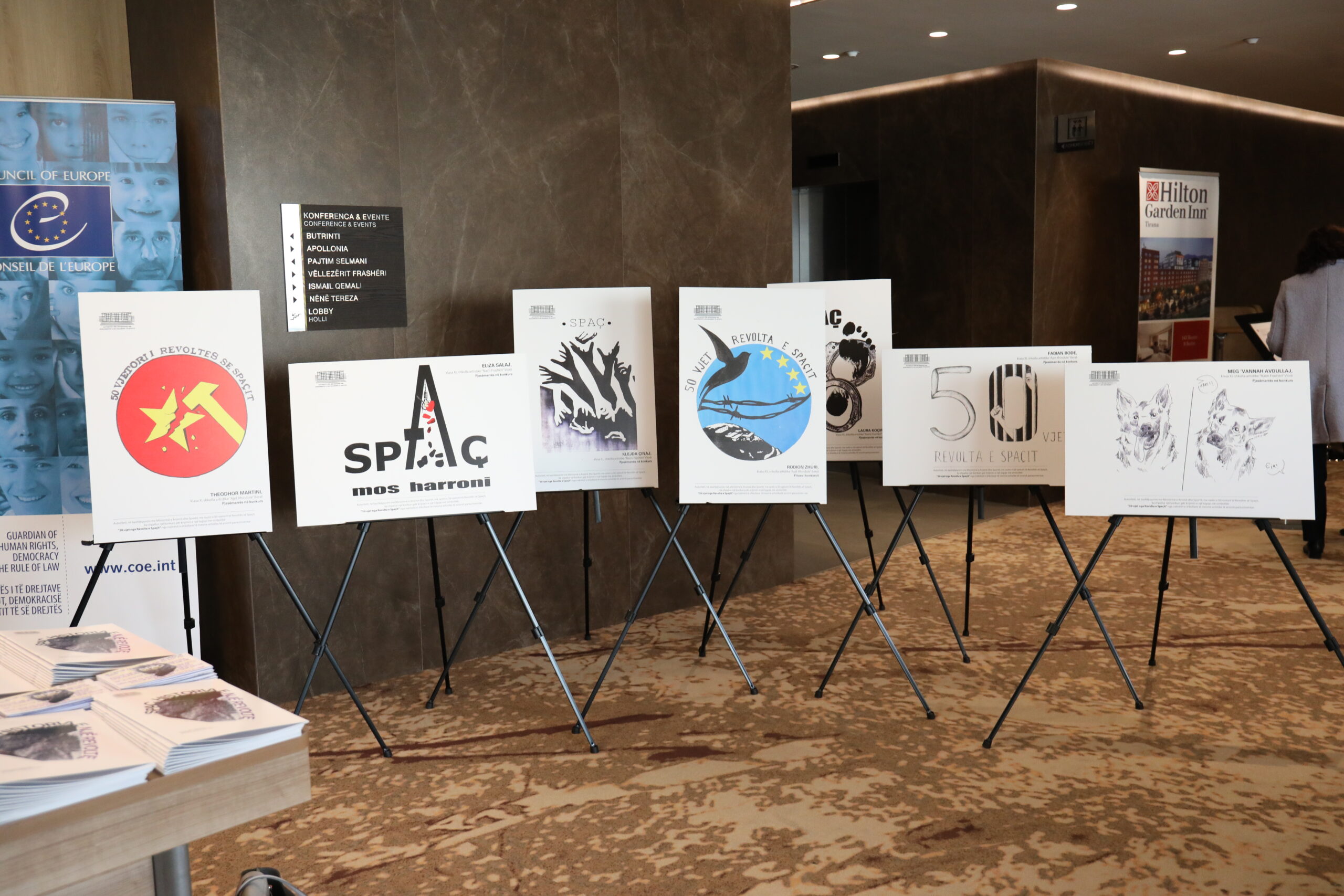
– Towards the platform “Learning about the past ’44-91- Open Educational Resources” with the support of the Department of Education of the Council of Europe and in cooperation with the Ministry of Education.
Tirana 19.12. 2023-The use of former State Security files for teaching the history of the totalitarian regime is being highlighted as a very important aspect of education for democracy in school.
In this approach, a two-day seminar began today in Tirana, at the initiative of the Authority for Information on Former Security Documents, in collaboration with the Ministry of Education and Sports and with the support of the Education Department of the Council of Europe. International and local experts in history and education were present.
Ms. Gulia Re, Head of the Council of Europe in Tirana, said: ‘This international seminar is a step towards healing, understanding and preparing children for a future where the past is not a source of division, but a foundation for unity and progress. We invite educators, students, parents and all members of our community to actively engage in this initiative, to contribute their voices and efforts and to join in this important effort.”
Ms. Gentiana Sula, President of the Authority in her opening speech said: "This is an international, very promising seminar. The aim is to institutionalize "Learning about the past '44-91 - Open educational resources" that AIDSSH has launched with the Ministry of Education, being informed by the best practices of countries that suffered from history, in the use of secret and historical documents.
This platform will be put at the service of children of different ages, who will actively learn the contemporary history of Europe and Albania based on valuable sources, and assess the costs of totalitarian systems on individuals and society.
Its final product is expected to be, first, the steps to be followed by AIDSSH and partner institutions, and secondly, their final products and results, so that teachers of history, language and literature, citizenship, and philosophy can be trained in teaching history, through open archival and bibliographic resources, through a well-defined teaching, extracurricular, and extracurricular program.
Ms. Nina Guga, Deputy Minister of Education and Sports said: Our ultimate goal is to gradually prepare schools with the unwritten history of the activities of the former State Security. To achieve this goal, we plan to integrate this history into curricula and textbooks. We believe that knowledge of this period is essential for raising the awareness of future citizens and for preventing the repetition of past crimes.
The use of information and communication technology, learning and memorization are integral parts of the projects and activities that will be developed within the framework of this project. Particular importance is given to practical projects and activities, including the work of students as historians, who will research, analyze and interpret historical events and figures.”
Museums and archives play a crucial role in preserving historical artifacts and documents. They are the guardians of our past and provide tangible connections to the events and experiences of dictatorship.
Working with these institutions brings authenticity and depth to the educational experience, allowing students to engage directly with primary sources, artifacts, and individual stories. This engagement is essential for developing a deeper and more empathetic understanding of history.”
The former State Security was responsible for persecuting citizens, suppressing intellectual debate and eliminating prominent figures in the country. Learning such stories holds great potential to strengthen students' appreciation for democracy and respect for human rights, emancipating them as active and critical democratic citizens.
International academics and local education experts addressed topics such as: Exposing the mechanisms of totalitarian rule. Understanding history through secret police files; The Right to Information on Access to Historical Documents; State Security Files: Undiscovered Documents of Albanian History;Legal and Ethical Implications of Using Secret Police Files for Pedagogical Purposes; Integrating Teaching about Totalitarian Regimes into History Curricula and Teaching Materials: Opportunities and Challenges; Using Multimedia and Technology in Teaching the History of the Secret Police. Virtual Reality Experiences. Digital Histories and Secret Police Files.
The first day ended with the roundtable: The Approach of Repression in Totalitarian Regimes in the History Classroom – Pedagogy and Practice, which also included history teachers.
The results of this seminar will be part of the platform "Learning about the past '44-91 - Open Educational Resources" and will help teachers and interest groups learn about the past, contributing to the process of building trust in Albania after the fall of communism.
The activity was supported by the Education Department of the Council of Europe, and was organized in cooperation with the Council of Europe, within the framework of the project "Strengthening Education for Democratic Citizenship in Albania", funded by SIDA.